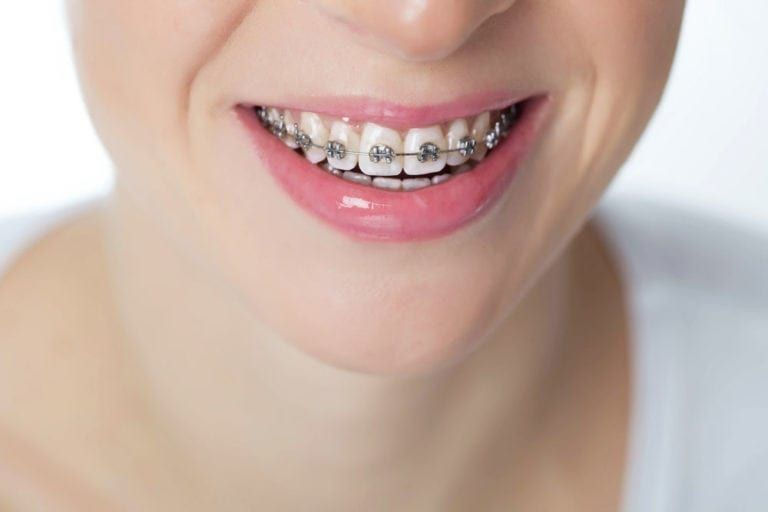Understanding Bruxism: How to Stop Grinding Your Teeth for Good
- dclinicdubai
- Aug 12, 2025
- 4 min read
Bruxism, or teeth grinding, is a condition that affects millions of people globally, often without them realizing it. From worn teeth to chronic jaw pain, the consequences can be serious if left unaddressed. Fortunately, solutions are readily available—particularly for those seeking teeth grinding treatment in Dubai, where modern dentistry meets customized care. By understanding the root causes and effective strategies for prevention, you can break the habit and protect your oral health long-term.

What Is Bruxism:
Bruxism is the medical term for the involuntary grinding, clenching, or gnashing of teeth. It can happen while you're awake (awake bruxism) or during sleep (sleep bruxism), often without any awareness. While occasional grinding might not be harmful, chronic bruxism can lead to fractured teeth, jaw disorders, and disrupted sleep.
Common Causes of Teeth Grinding:
The causes of bruxism can be complex and multifaceted. While the condition is sometimes triggered by physical issues, psychological factors play a major role in many cases. Common contributors include:
Stress and anxiety
Poor sleep quality or sleep apnea
Misaligned teeth or bite issues
Excessive caffeine or alcohol intake
Certain medications or recreational drugs
Genetic predisposition
Neurological disorders like Parkinson’s disease
Understanding the root cause is essential for effective management and long-term relief.
Recognizable Symptoms:
Bruxism is often silent and symptomless—until damage becomes noticeable. Recognizing early warning signs can help prevent further complications. These symptoms may include:
Flattened or chipped teeth
Tooth sensitivity without decay
Sore or tight jaw muscles
Frequent headaches, especially in the morning
Popping or clicking in the jaw
Disturbed sleep or daytime fatigue
These signs often appear gradually, making routine dental checkups crucial for early detection.
The Risks of Ignoring Bruxism:
When bruxism goes untreated, it can lead to long-term oral and physical health problems. Ignoring the signs may result in:
Cracked or broken teeth
Receding gums
Chronic jaw disorders such as TMJ
Persistent facial pain
Increased dental costs due to restorative procedures
Seeking timely care—such as teeth grinding treatment in Dubai—can help prevent irreversible damage and improve overall well-being.
Diagnosis and Dental Evaluation:
Dentists typically diagnose bruxism through clinical observation and patient feedback. A proper evaluation might include:
Assessing wear patterns on teeth
Examining jaw alignment
Asking about lifestyle and stress levels
Referrals for sleep studies if sleep bruxism is suspected
Digital X-rays to inspect underlying dental structures
An accurate diagnosis ensures the right treatment plan is created for each individual case.
Treatment Options for Bruxism:
Teeth grinding doesn’t have a one-size-fits-all solution. Effective treatment depends on the severity, cause, and lifestyle of the patient. Common approaches include:
Custom night guards: Worn during sleep to protect teeth from grinding.
Orthodontic adjustments: Braces or bite correction for dental misalignment.
Cognitive behavioral therapy (CBT): Effective for stress-related grinding.
Botox injections: Temporarily relax overactive jaw muscles.
Medication review: Adjusting prescriptions that may trigger bruxism.
Relaxation techniques: Yoga, meditation, or breathing exercises to reduce tension.
Those seeking teeth grinding treatment in Dubai have access to a variety of modern, evidence-based solutions tailored to individual needs.
How to Stop Grinding Your Teeth at Home:
In addition to professional treatment, there are steps you can take at home to manage and reduce teeth grinding. These self-care strategies can significantly complement clinical efforts:
Manage stress: Identify triggers and incorporate daily stress-relief routines.
Avoid stimulants: Reduce caffeine and alcohol, especially in the evening.
Establish sleep hygiene: Go to bed at the same time each night and create a calming pre-sleep routine.
Be mindful of clenching: Set reminders to check your jaw position during the day.
Apply warm compresses: Use on the jaw area to relax tight muscles before bed.
Avoid chewing non-food items: Pens, ice, or fingernails can reinforce the grinding reflex.
Consistency is key, and many people find relief by combining these habits with professional care.
Pediatric Bruxism and Its Management:
Children can also experience bruxism, often triggered by misaligned teeth or emotional stress. While most kids outgrow the habit, persistent or severe cases should be monitored. Indicators in children include:
Grinding noises at night
Complaints of jaw or facial pain
Worn-down baby teeth
Difficulty sleeping
Pediatric dentists can offer solutions such as night guards or behavioral strategies to manage grinding in younger patients.
Why Choose Dubai for Bruxism Care:
Dubai’s dental clinics are equipped with cutting-edge technology and highly qualified professionals, making it a top choice for bruxism treatment. Whether you need diagnostics, custom appliances, or advanced therapies, you can expect:
Comprehensive consultations
Personalized treatment plans
State-of-the-art digital diagnostics
Multidisciplinary care, including psychological support
English-speaking and multilingual professionals
It’s no surprise that teeth grinding treatment in Dubai is gaining global recognition for its innovation and patient-focused approach.
Final Thoughts:
Bruxism is more than just a bad habit—it’s a condition that can silently harm your teeth, jaw, and overall well-being. With the right understanding, early detection, and tailored solutions, you can take control and put an end to grinding for good. Whether you're struggling with stress-induced clenching or sleep-related grinding, exploring teeth grinding treatment in Dubai offers a world-class pathway to relief. Don’t wait for the damage to set in—take the first step toward a healthier, more restful life today.


Comments